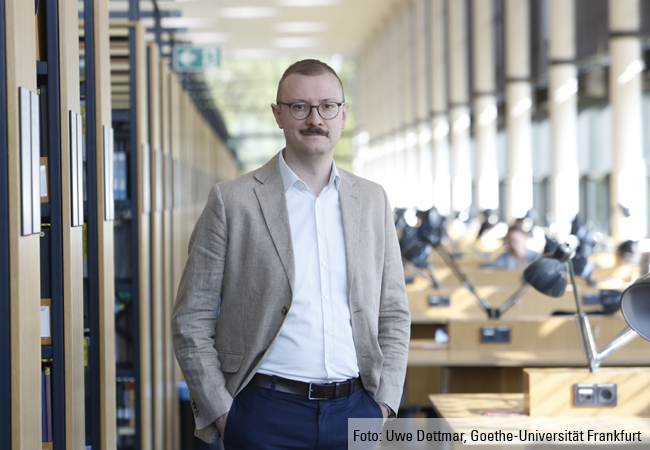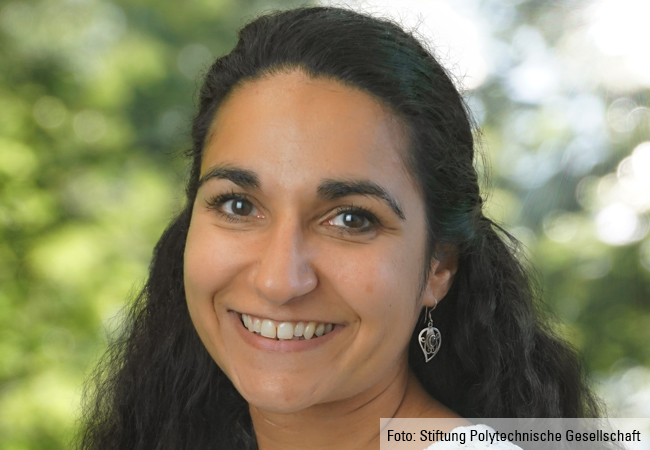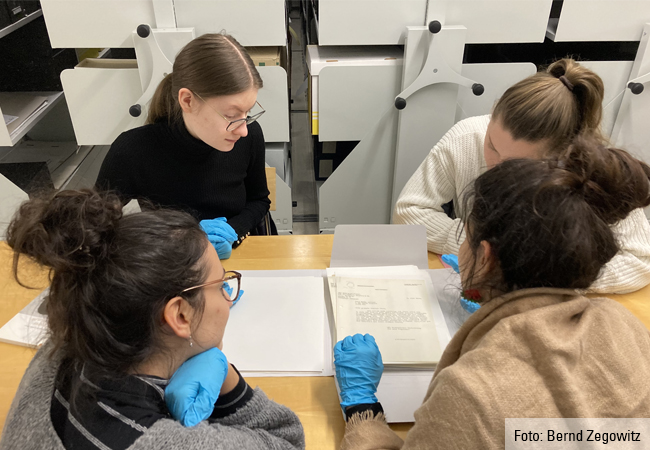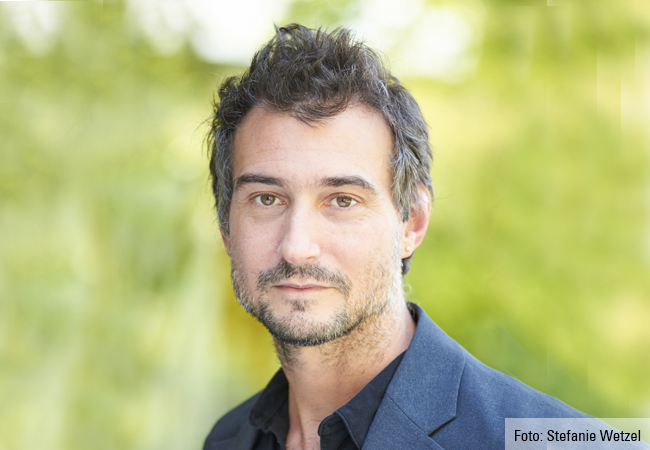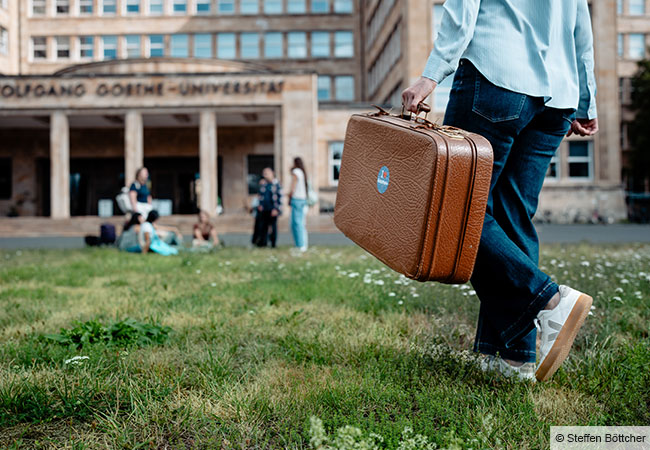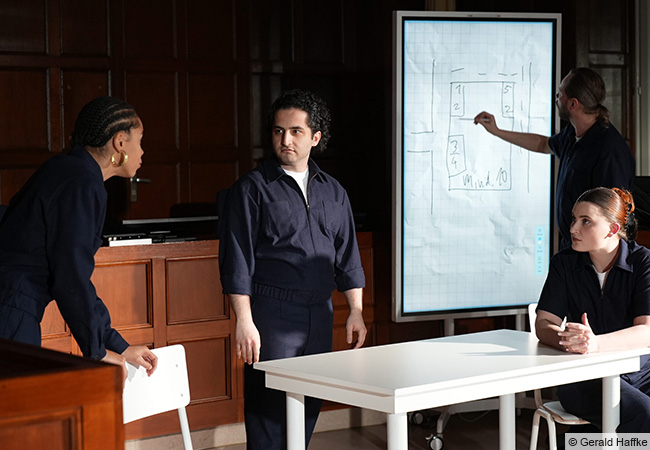Gabriele Britz, former judge at the Federal Constitutional Court, has been teaching public law at Goethe University Frankfurt since this summer semester.
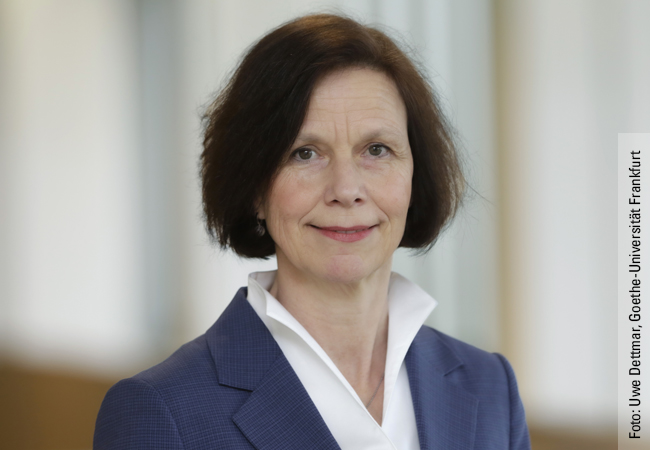
UniReport: Ms. Britz, you were just 33 years old when you became a professor, at 42 you were appointed to the Federal Constitutional Court. Are you always in such a hurry?
Gabriele Britz: “In a hurry” is not quite how I would put it. If I’m interested in something, I definitely get down to business, and quickly. But I personally had no influence whatsoever on my election to the Federal Constitutional Court. At most by becoming a professor early in my career. The fact that, at 42, I had already been standing at the front of vast lecture halls for years, had academic standing, had been dean and dean of studies for three years as well as a member of various other committees, were presumably reasons why I was entrusted with the office at a young age.
Why did you study law?
Because I was interested in very different things and had the impression that some of them could be combined by studying law. Many of the subjects I found interesting were not considered lucrative at the time, including political science, philosophy or history. With law, I was able to pursue all of these and nevertheless have the feeling that I would be able to earn my own living later on.
How difficult was it for you to leave the Federal Constitutional Court after 12 years?
Not very difficult. I enjoyed my office from the first to the last day and worked hard at it. But you know from the start that after twelve years it will be over. It’s not possible to be re-elected. I think that is right, and you prepare yourself for it. What’s more, the job is really demanding, so it’s a relief when it comes to an end.
You then went straight back to your professorship in Giessen. Didn’t you feel any sense of loss?
Working at the court really is a unique experience. It’s a very important task. Given that I have always specialized in constitutional law and had already thought a lot about the constitution, it was fascinating for me to play an active part of the constitutional process for a while. That being said, I also looked forward to returning to research and teaching.
Is it possible to work as a judge and teach at the same time?
On a minimum scale, yes. You keep your job as a professor but are exempted from teaching. I held a lecture on constitutional law on a regular basis in the winter semester, together with two judges from administrative courts.
During your time at the Federal Constitutional Court, you were involved in some important decisions. Which one had the greatest implications, which one attracted the most attention – which doesn’t necessarily have to be one and the same?
Of the decisions where I was rapporteur, the ones from the first seven years concerning family and civil status law as well as parental and child allowances are still very vivid in my mind. This included, for example, the highly controversial childcare allowance, which we deemed unconstitutional due to a lack of legislative power. Many other decisions concerned child protection proceedings, which often stir up people’s emotions. We called on the family courts to justify more precisely why children were separated from their parents – or why they were not separated despite signs that the child’s welfare was at risk. Decisions on the possibility of adoption for same-sex couples, which were met with much enthusiasm, but also a lot of rejection, also fell during this period. Just like the decision on the third gender, the “third option”.
That there is a third option for entries in the civil register in addition to “male” and “female”.
Yes, exactly. Then my responsibilities changed, and I also became a rapporteur for environmental law. The climate judgement certainly attracted the most attention during this time, but other important decisions on the use of wind energy and legal protection in environmental law were also reached. Later I also assumed responsibility for parts of data protection law, including the rulings on the Bavarian Office for the Protection of the Constitution and on automatic data analysis in Hesse.
Are people responsible for topics for which they are already an expert?
No. I simply took over the responsibilities of my predecessor. That’s why I was responsible for family law in the first few years, although I had never had anything to do with this field before.
Women are always responsible for family topics, aren’t they?
Yes, for decades there was only one female judge at the Federal Constitutional Court – for family law naturally –, all the other members of the court were men. Currently, however, family law is in male hands.
That’s nice, and at the same time also a natural reflection of the way in which society has changed. During your time at the court: Did you brood over some things after work?
Yes, in very different ways. I thought a lot about the many child protection proceedings because the individual human suffering was so tangible. It’s not just the children who suffer, it’s awful for everyone involved. Other decisions were very engrossing because of their implications for society overall, such as questions about the protection of the constitution or police powers. On the one hand, such decisions must take the protection of freedom from state surveillance into account, and on the other hand protection from terrorist attacks. The responsibility for such decisions weighs heavy.
Has your teaching changed as a result of being a judge at the Federal Constitutional Court?
Presumably. My lecture on constitutional law has certainly changed a little. When you have experienced and been involved for so many years in how constitutional law works in court practice and how the Basic Law is developing there in concrete terms, your view of the constitution changes. I try to pass something of this on to my students.
Does the Federal Constitutional Court need to be better protected against attacks?
In my opinion, certain small changes would be very helpful, including when it comes to the election of the 16 judges, which according to the Act on the Federal Constitutional Court requires a two-thirds majority. This stipulation ensures that for decades now, the Federal Constitutional Court is appointed in a balanced manner and does not one-sidedly reflect the political parties in government, and that the people appointed to it are capable of judging on a wide range of different matters.
And that doesn’t work anymore?
Yes, it does, but a permanent blockade in the election of judges cannot be ruled out. If certain parties or parliamentary groups, which together or individually yield more than two-thirds of political power, are not involved in the distribution of nominating rights for places on the bench, they could retaliate by exercising their blocking minority to block the election of judges. The legislator would then be tempted to resolve the blockade by abolishing the requirement for a two-thirds majority. Since this is not anchored in the Basic Law, the legislator could abolish it with a simple majority.
That would be a bad solution?
Yes! The requirement of a two-thirds majority is absolutely essential to ensure that the Federal Constitutional Court cannot be appropriated by governments in terms of its staff, that it is objective and particularly independent, and that it is also perceived and valued accordingly.
How could this be better ensured?
The only solution is via the Basic Law. The requirement of a two-thirds majority for the election of judges would have to be enshrined there and a provision included on how to resolve a blockade without abandoning this requirement. Since the Basic Law posits that half the judges be elected by the Bundestag and half by the Bundesrat, a particularly simple solution in the event of a permanent stalemate in one body would be to have the other body elect the two-thirds majority. But there is a whole range of other possibilities.
Are there other problems?
Yes, a simple majority in the Bundestag could quite easily weaken the Federal Constitutional Court and thus free itself from the shackles of the constitution. The procedure and organization of the Federal Constitutional Court as a whole are not regulated and safeguarded in the Basic Law itself, but in simple law, which can be changed more easily. Although I do not see an acute danger that the legislator would want to paralyze the Federal Constitutional Court through dysfunctional procedural rules, the examples of Poland and Hungary have shown that this can happen very quickly and is only difficult to reverse. A constitutional safety mechanism should now be put in place with a broad majority for amending the constitution so that the same thing cannot happen here.
How could this threat be banished?
In fact, it would be easy to do. A simple but effective way would be to make changes to the procedural rules for the Federal Constitutional Court dependent on the approval of the Bundesrat. This would make it almost impossible to introduce rules aimed at disabling the Federal Constitutional Court. That is one of the advantages of our federal system: It is hardly likely that the Bundestag and the Bundesrat will topple at the same time. So far, however, the Bundestag alone is responsible for the Act on the Federal Constitutional Court.
What do you find appealing about Goethe University Frankfurt?
The Faculty of Law is a large one, with a broad and interesting course portfolio and research profile as well as good connections to other faculties and institutions. I also like the fact that law in Frankfurt continues to focus on the fundamentals. Westend Campus is particularly beautiful, and it’s an advantage that the social sciences and the humanities are all situated on one campus. I also like Frankfurt’s international flair, which you can feel every day on campus.
Interview: Anke Sauter


